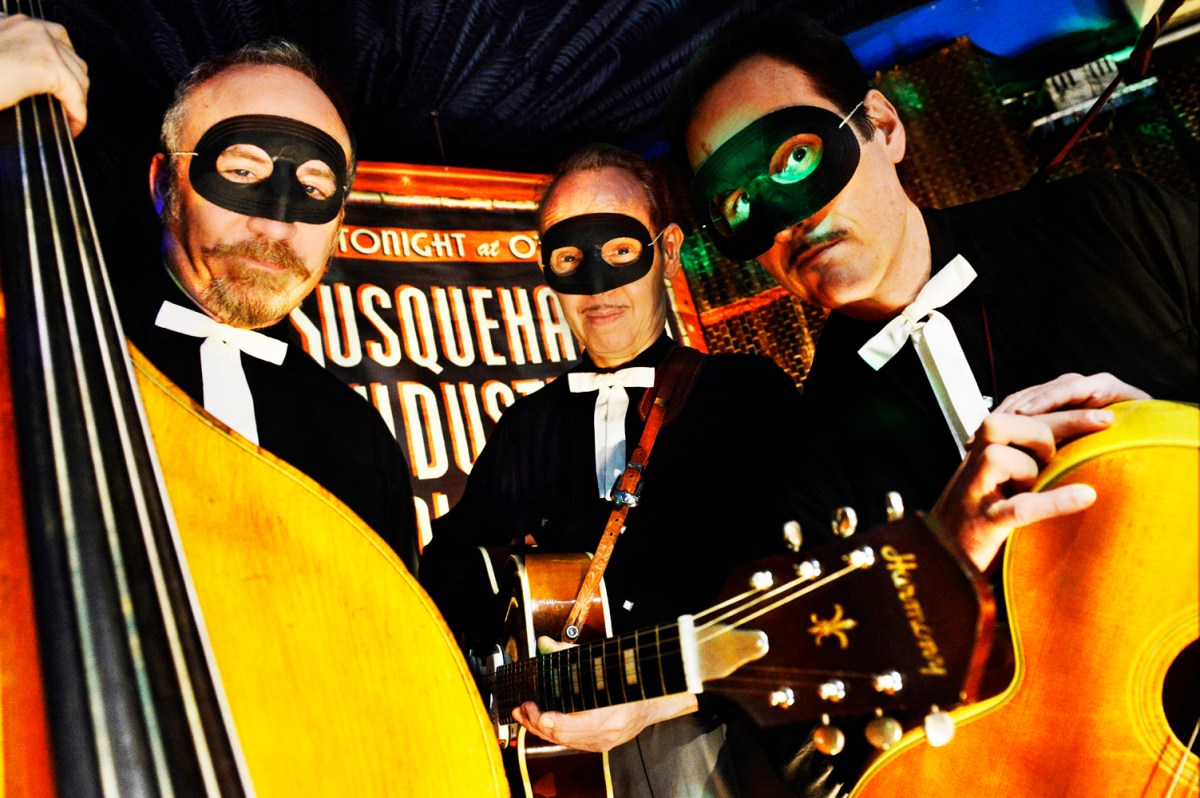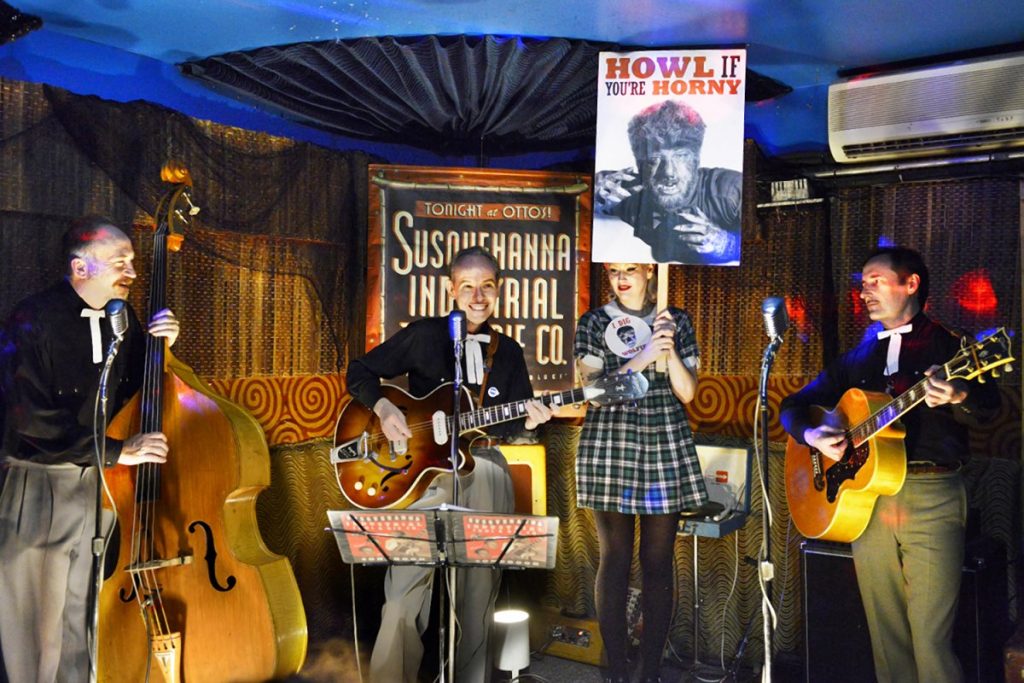
BY BOB KRASNER | Walk into Otto’s Shrunken Head on the last Thursday of any month, sit down in the back room at a small table, and have yourself some “salty snacks.” Then be prepared to be seriously entertained — at 8 o’clock sharp — by three identically clad gentlemen who love playing their music so much that they do it for free, as they’ve been doing continuously in this room for the last ten years.
They call themselves the Susquehanna Industrial Tool and Die Co. (more about that later) and they play “hillbilly boogie, which is a sort of proto-rockabilly,” according to rhythm guitarist Jon Hammer. Upright bassist Garth Powell hesitates to describe the band — which has no drummer — but does muse on its singularity, noting that, “three weirdos in a trio will result in uniqueness.”
The third part of the equation is Michael McMahon: lead singer, songwriter, lead guitarist and raconteur, emcee and general all-around entertainer. How this group came to be a regular East Village fixture is his story — how a guy who grew up in Pittsburgh listening mostly to sports talk radio, moved to New York, learned the difference between a guitar and a bass and never stopped playing.
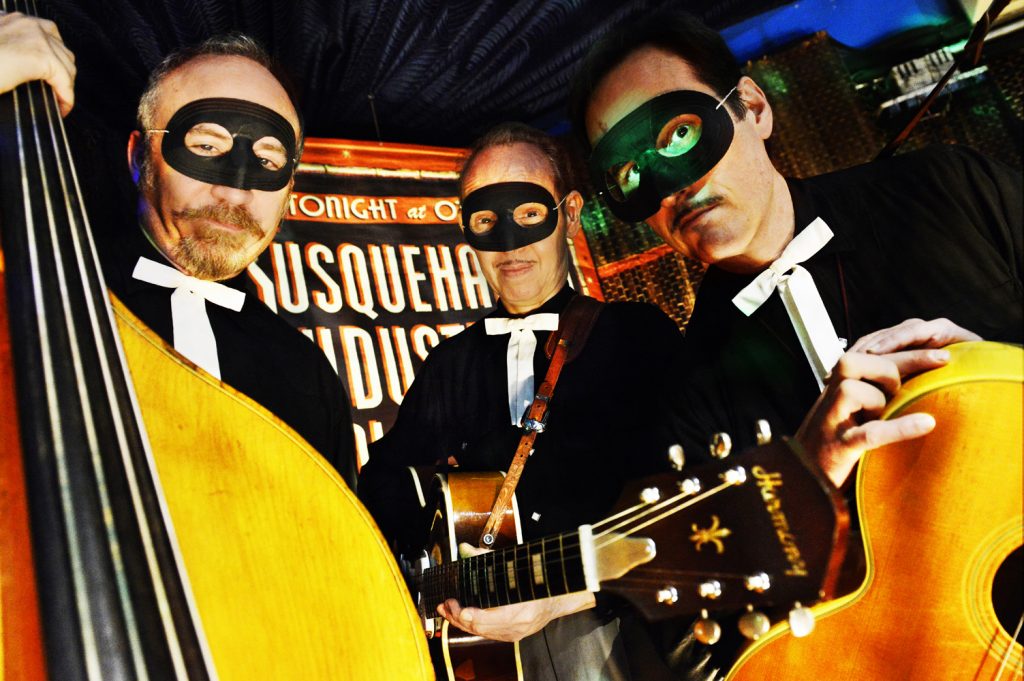
His parents listened to Barbra Streisand, but his big sister Amy was already in New York City, in the middle of the punk/no wave scene. He joined her there in 1978, learned to love The Clash, the Cramps, Teenage Jesus and the Jerks and the Contortions and bought himself an electric bass.
“I wanted to play something,” he recalled. “A friend told me the guitar had six strings and the bass had four, so I chose the bass.”
His first band was a punk combo called the Starekits. They did a total of three shows.
“We were terrible, but we looked amazing,” McMahon said.
Eventually, he found a place to live in the East Village, where he still resides, and formed a new band with sister Amy. He described Last Roundup as “hillbilly with a punk attitude — the punk part was that we had no idea how to play!”
Powell was a member of the band, as well. They played mostly originals, written by the two McMahons, because, as Michael put it, “it was easier than learning covers.”
They got themselves a record deal, great reviews, toured the country, made no money and broke up.
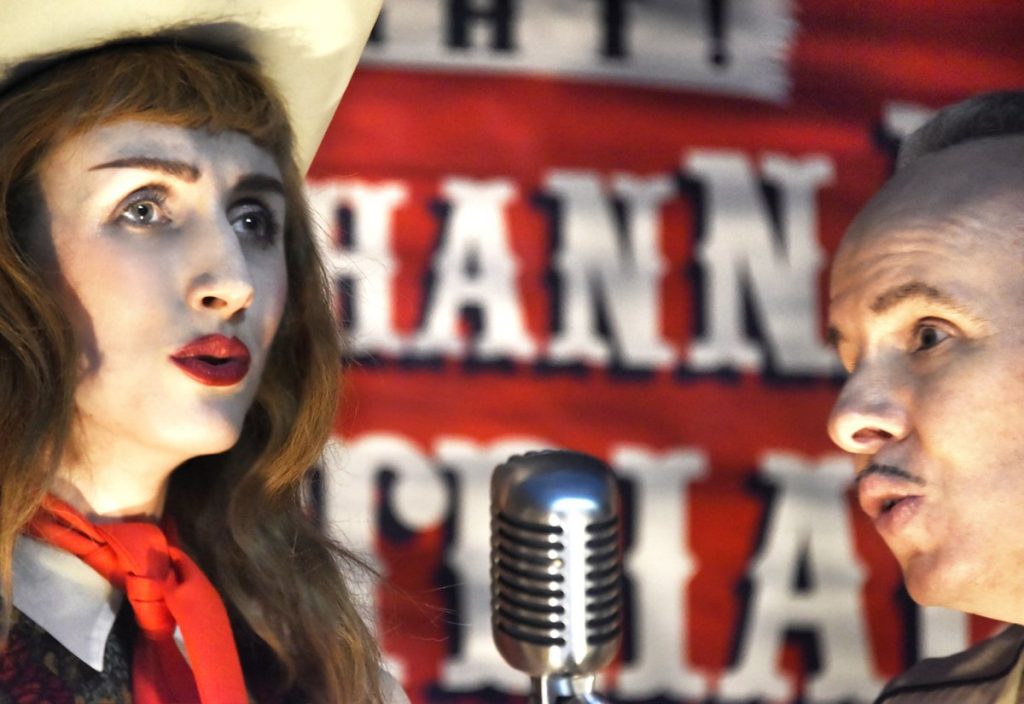
Amy, now married with a new surname, Rigby, went on to form The Shams with Amanda Uprichard and Sue Garner and then to a very notable solo career.
McMahon, who now had a day job, found himself checking out the “Avenue C Opry” scene, a Monday night affair that brought country music fans together in a tiny East Village bar. It was there he started jamming with pedal-steel player Henry Bogdan (who played bass in the metal band Helmet).
At the time, the band was a much different quartet — McMahon on guitar, Powell on bass, Bogdan on pedal steel and Rick Brown on drums. In a pinch before a show, McMahon came up with the name: Susquehanna Industrial Tool and Die Co. It wasn’t until later that it was pointed out to him by his brother that it had a pretty catchy acronym: “SITandDIE.”
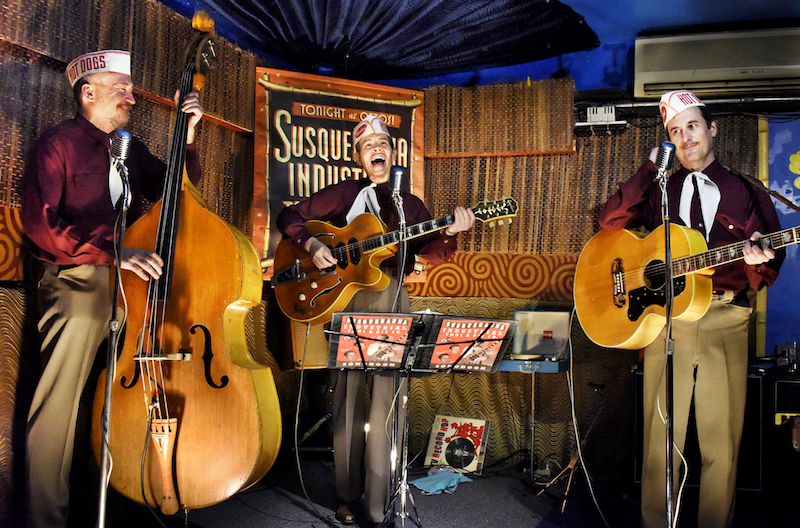
Fast-forward to the present, and the trio is now the “longest-running act at Otto’s,” at E. 14th St. and Avenue B. Once a month the place fills up with fans who take sartorial cues from the band and dress in vintage duds.
It’s a bit of a surprise when you realize that most of the tunes that sound like they are from another era are actually from McMahon’s songbook.
“I still marvel at the songs he writes, wondering what thrift-store record bin he unearthed them from and then realizing nope, it’s just Michael being brilliant,” McMahon‘s sister Amy Rigby said. “Michael has always been a musician of vision and purpose, from his first twang on an electric guitar back in our Last Roundup early days. The notes he played were minimal but the sound and aesthetic were always there.”
If you’re lucky, go-go dancer Pamela Sparacino will be on hand to do her adorable dance to the chorus of “Dig That Crazy Monkey!” — “Go, Monkey, Go!”
You can also count on frequent guest spots from wonderful singer Stella Rose Saint Clair and much-welcomed appearances by artist Daisy Reinhardt, who brings chicken for everyone when the mood strikes her.
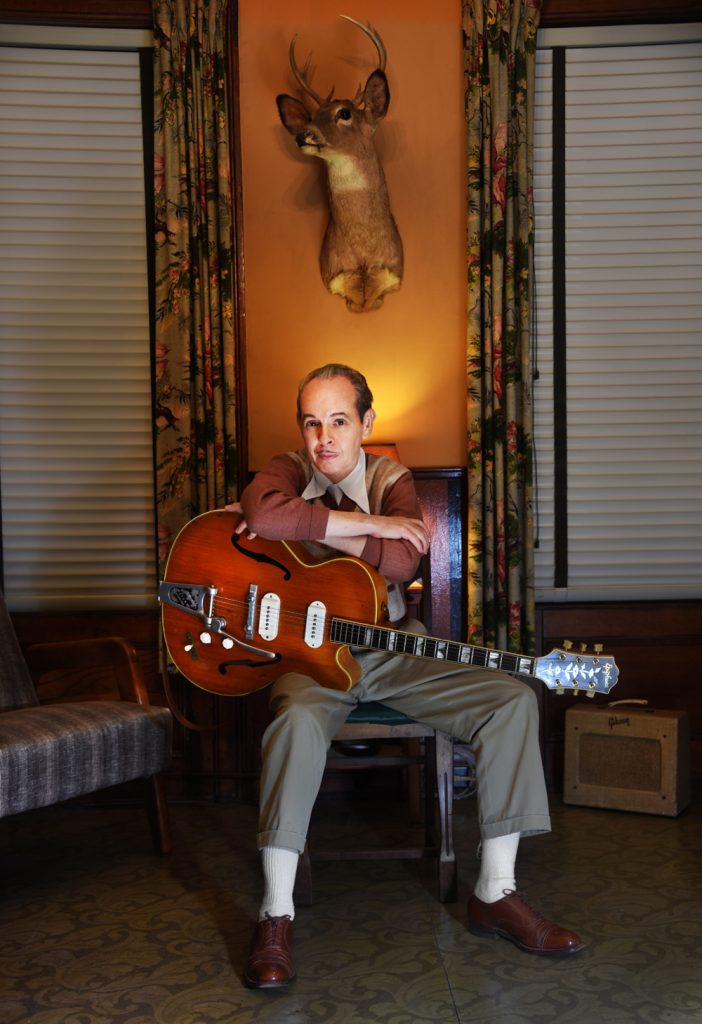
But in the middle of it all is McMahon, singing into a vintage microphone and “oozing indescribable movie star charm that wins you over instantly,” in the words of Carol Elizabeth Dietz, a regular at the monthly gathering. “He is a throwback to a golden era of impeccable personal style.”
Bassist Powell, who has a day job as an editor, sees the residency as a positive thing.
“It keeps me out of trouble,” he said. “Would have probably joined a cult if I did not have it.”
Guitarist Hammer, who is also a writer and a painter, muses on how they have managed to stay together for so long:
“I guess we’re set in our ways. Just pure stubbornness.”



